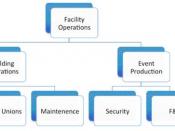As a manager one strives to become the most productive person he or she can possibly be. In this hectic world multitasking has become a normal way of life. How does one complete his or her daily tasks, let alone by responsible and accountable for the tasks of others? Successful managers rely on delegation as the solution to completing his or her tasks and insure the tasks of others under his or supervision are completed on time. The theory of delegation and its use in my workplace will be discussed in this essay.
All formal authority in a business enterprise belongs originally to the owners. In many cases, however, the owners cannot or do not wish to manage the business directly. They hire others, that is, managers, to run the enterprise for them.
(Plunkett, 1982, p. 5)The company that employees me is listed as a small partnership without many managerial levels. In fact, my direct supervisor is the company president and this makes me only accountable to him. This type of managerial structure definitely eliminates the middle man and does not allow for any third party interaction and is sometimes considered a pro. However, this limited managerial system does not allow for any buffer between the "big" man and me. I am positive this structure will change as the company grows.
My employment with my current employer began in March 2008; the company was founded in 2005. The company provides management services for water and wastewater treatment facilities. The services provided by the company are custom tailored for each individual site and client. The company provides just the facility manager at my site. The employees are provided by the client, who makes the ultimate hiring and dismissal decisions. To give some insight, a little site history will be discussed.
The facility has been under some form of contract operations management service for the last 21 years. During that time over 30 managers and 2 contract operations companies have come and gone. Our company is the third company to provide services for the facility since May 2006. The client wants nothing to do with the day to day facility operations and the management of the employees associated with the facility. In fact, employee transfer to this facility has become the last step prior to dismissal for many past employees. To make the situation worse, our company employed a manager, who was not a correct fit for the facility or the employees. It appeared the company was following the leader and sending managers through the revolving door. Paranoia was the common thread that held everyone together, then along came Frank.
My assignment, if I chose it, was to "fix the problem." Anyone with common sense knew that would not be easy, but the assignment was chosen anyway. Being unemployed for eight months was a contributing factor in my decision to accept the assignment. It was like walking into the twilight zone of paranoia, no one, including my company, trusted anyone or anything. Seeing is believing and actions spoke louder than words. Evaluating the problems from history was not the way to find their solution. Everyone had his or her own different story of woe and of course, the solution to fix every problem. Makes one wonder why these solutions were not tried in the past? It was time for a reality check and to start from square one, however, where and what was square one?Square one for me was to establish creditability with my management, the client and the employees. Obtaining creditability would not be an overnight task. The assumption was that once creditability was established, delegation would be soon to follow. The assumption was correct and delegation from my upper management began to trickle down the pipeline to me. Another positive effect from gaining creditability was the bond between the client and employees with me was starting to strengthen. For the first time in years; lines were drawn, expectations were developed and made known to all parties. The rewards for compliance and the consequences for failure to comply were implemented and consistently enforced. Everyone knew exactly where he or she stood. Something started to happen that had not occurred for years; paranoia made the change to become a state of trust for everyone.
The flow increased through the delegation pipeline from both my management and the client straight to me due to the newly established increased levels of trust and confidence. For the first time since my employer managed the site, the facility manager was given complete control of the management responsibilities for the facility. What was one to do with all this newly acquired responsibility? The acquisition of the delegation included my accepting the responsibility, authority and accountability for the overall project.
Daily facility management consists of: federal and state compliance management for the facility, lift stations and collection system; employee scheduling and task assignment; meeting with the client whenever the need arises; ensure the contract between the client and their employees is followed and other duties as required.
For the first time in years, employees were given the total responsibility for completing tasks that also included accountability for other employees on their crew and the authority to make changes to promote the safe and timely completion of these assigned tasks. The employees, being accustomed to micromanagement, could not believe that anyone would believe in them to the point they could and would complete a given task without being micromanaged. As the tasks became easier to perform and these tasks were completed, most ahead of schedule, the employees realized job preplanning was a necessity and not a punishment as in the past. Employee job preplanning has now become the norm and not the exception or punishment as retaliation for a prior job not completed correctly.
Leading by positive example has proven to be an effective learning tool for all involved. Give a man a fish and he will not be hungry for a day; teach a man to fish and he will never go hungry is an old expression that has relevance in today's world. The employees now have a grasp of the basic tools required to complete their daily tasks: directing, leadership, planning and organizing. The employees now embrace these tools and use them daily to ensure their success and the successful operation of the facility.
In order to survive, controls need to be put in place. Client meetings are held once each week or on an as needed basis. Federal and state reports tell the tale for proper facility operations. Monthly a task force meeting is held with the appropriate officials to discuss projected employee and facility needs. Financial goals are kept in check with the use of approved budgets and following the client's purchasing guidelines. My direct manager, the company president, normally biweekly to get a status report and is always available by phone. His biweekly visits, at the start of the project, have now been reduced to quarterly visits.
In summary, according to (Bateman & Snell, 2009, chap. 8) the steps of successful delegation have been achieved, These steps include; defining the goal, selecting the person for the task, soliciting the subordinate's view about the suggested approaches, giving the subordinate the resources (people, money, equipment) to perform the assignment, scheduling checkpoints to review progress, and following through by discussing progress at appropriate intervals. Following the above listed has ensured present and the future success of the company at this facility. A new contract to manage the facility has recently approved for five years with an automatic five year renewal as a result of this successful turnaround.
ReferencesBateman, T. S., & Snell, S. A. (2009). Management: Leading & Collaborating in the Competitive World (8th ed.). : McGraw-Hill Irwin.
Plunkett, W. R. (1982). Supervision: The Direction of People at Work (Second ed.). United States of America: Wm. C. Brown Company Publishers.





